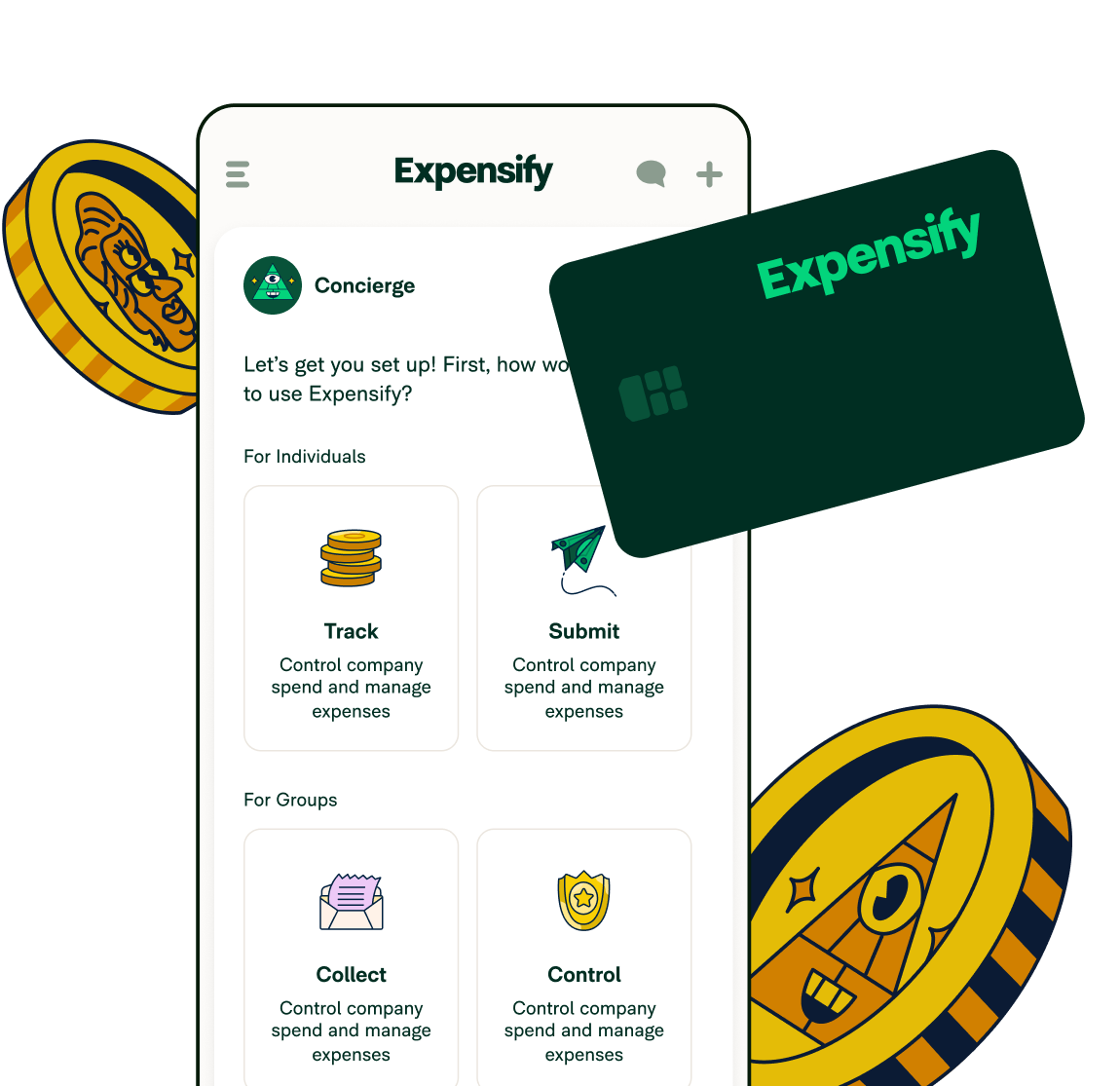14 need-to-know tax tips for small businesses

As a small business owner, your plate is already overflowing with day-to-day operations, strategy planning, and the occasional coffee spill. So, when tax season rears its head, it's only natural to feel that added pinch of pressure.
But here's a silver lining: taxes, while intricate, don't have to be the formidable foe we often make them out to be. With the right preparation, coupled with the best procedures and expense management tools, you can breeze through tax season like it's just another day at the office.
We’ve broken down 14 tax tips for small business owners to help you not just survive, but rock tax season and learn some ways you can make tax season a little easier!
1. Understand tax deductions and credits
Think of tax deductions and credits as the little sprinkles of solace that can significantly reduce your business’s taxable income and tax payable, respectively.
By understanding what business expenses can be deducted, you can lower your taxable profit. Meanwhile, tax credits directly reduce the amount of tax you owe, providing dollar-for-dollar relief.
The tricky part? Deductions and credits are always changing. To maximize these benefits, it's worth reading up on which expenditures are deductible each year to make sure you don’t miss out on any potential savings.
2. Keep your records nice and tidy
A well-organized record-keeping system isn't just good for daily operations — it's the key to successfully filing taxes for a small business. Clean and clear documentation makes it easier to report income and expenses and substantiate deductions. After all, you can’t claim a deduction if you’ve lost a critical receipt.
Receipt scanning tools like Expensify simplify this process by allowing you to digitize and categorize receipts seamlessly so everything is right where you need it to be when you sit down to crunch your numbers.
3. Estimate your quarterly taxes to avoid surprises
Rather than one big yearly payment, estimating and paying your taxes quarterly can be more manageable for some businesses' cash flow. And the IRS requires most small business owners to make quarterly estimated payments if they expect to owe more than $1,000.
Requirements aside, keeping tabs on your taxes throughout the year helps you avoid unexpected surprises and ensures you’re financially prepped for your tax bill. It also allows you to adjust your payments based on fluctuating income throughout the year so you don’t get caught with a hefty payment during a slow business season.
4. Donate to charity
Giving back isn’t just good for the community — it’s good for your business's tax bill. When your business donates to a registered charity, you can typically deduct that amount from your taxable income, meaning you pay less in taxes while you help a good cause. We call that a win-win!
5. Classify your business correctly
When you start a business, there are different entity types you can choose from. Deciding which classification your business falls into is an important step in your business journey — and it can affect how much you owe come tax time.
Read up on the different types of entities and their tax benefits, including C Corporations, S Corporations, Limited Liability Partnerships, Limited Liability Companies, Single-Member LLCs, or Sole Proprietors, and double-check that your business is classified correctly.
6. Track your business mileage
If you’re traveling for business, you better be tracking those miles! By keeping an accurate record of your mileage, you’ll not only be prepped to make some deductions come tax season, but you’ll be safeguarded in the case of any potential audits.
There are two ways to calculate the business deduction for the use of your vehicle:
The standard mileage deduction, which involves tracking your mileage and multiplying the miles driven by the federal mileage rate for the year
The actual expenses method, which requires you to track the individual expenses associated with your vehicle
Trips made for business purposes are always tax deductible, but the annual IRS mileage rate fluctuates. Make sure to check out the rate for the current year, and decide which deduction method is best for your business.
Also, using tools like Expensify’s distance tracking feature can help you track every trip so you can stay compliant and maximize your deductions.
7. Stay updated on tax law changes
Unfortunately, tax laws are ever-changing. As tedious as it might be, it’s important to stay up to date on these changes to avoid compliance issues and to make the most of new benefits. To ensure you’re always informed, consider subscribing to tax newsletters, attending tax-related seminars or webinars, and periodically checking the IRS website for updates and guidelines.
Leveraging preaccounting software makes it easy to adapt to changes swiftly, providing realtime updates so you can rest assured that your financial records and deductions are always in sync with current laws. Basically, preaccounting software helps you proactively adjust your strategies and maintain compliance without the constant manual effort of tracking changes yourself.
8. Don’t forget home office deductions
If you work from home, you’re in for a major perk — and we’re not talking about wearing sweats all day. Home offices equal tax breaks. This could include a portion of your monthly rent or mortgage payment or some of your Wi-Fi or utilities bill. Read up on what you qualify for before tax season to avoid any setbacks or answer any questions you have ahead of time.
9. Use the Section 179 tax deduction
Section 179 of the U.S. tax code is like the IRS’s little gift to small business owners. This section allows businesses to deduct the full purchase price of qualifying equipment and software bought or financed during the tax year — meaning if you buy a qualifying item, instead of writing it off little by little over several years, you can deduct the full price from your taxes the year you buy it.
Let’s say you own a small construction business. Under Section 179, if you buy a new excavator or a piece of heavy machinery during the tax year, you won't have to wait years to write off the expense gradually. Instead, you can deduct the entire cost of that machinery from your taxes this year. This immediate tax relief can free up funds, enabling you to reinvest in other aspects of your business or take on bigger projects.
This one small tax law can be a big boost for many small business owners, allowing you to invest in your business and reduce your taxable income at the same time.
10. Separate business and personal expenses
Interweaving business with your personal life never seems to end well — and the same is true when it comes to expenses. Mixing business and personal expenses can lead to financial confusion, potential tax issues, and lots of headaches. Depending on your business entity type, it may even be required by law to keep your personal expenses separate.
One efficient way to separate your finances is by keeping all business expenses on a company credit card, like the Expensify Card. Not only does this simplify tax reporting, but using a corporate credit card also lets you capitalize on cash-back rewards and additional benefits tailored specifically for businesses.
Plus, it helps you establish a clear financial boundary between your personal and professional worlds, reinforcing good financial habits and ensuring your records remain audit-ready at all times.
11. Take advantage of retirement benefits
Contributing to your retirement account benefits your financial future and offers immediate tax savings. Here's a breakdown of how contributions to various types of retirement accounts can affect your taxes:
Traditional IRA: Contributions made to a Traditional IRA may be tax-deductible depending on your income level and whether you or your spouse have a retirement plan at work. Deductible contributions reduce your taxable income for the year, which means you pay less in taxes. However, when you eventually withdraw funds in retirement, those distributions are taxed as ordinary income.
Roth IRA: Contributions to a Roth IRA are made with after-tax dollars, so there's no immediate tax deduction. However, the advantage comes later: qualified withdrawals in retirement are tax-free.
401(k) or 403(b): These employer-sponsored plans allow employees to make pre-tax contributions, which reduces their taxable income for the year. Like the Traditional IRA, withdrawals in retirement are taxed as ordinary income. Many employers also offer Roth versions of these plans, which follow the same tax rules as the Roth IRA.
SEP IRA & SIMPLE IRA: These are retirement accounts designed for self-employed individuals and small businesses. Contributions to these accounts reduce your taxable income for the year, and like the Traditional IRA, distributions in retirement are taxed as ordinary income.
Solo 401(k): This is a 401(k) for self-employed individuals. It allows for both employee (you) and employer (also you) contributions. The combined contributions can provide a significant reduction in taxable income.
12. Don't wait to settle up on your tax payments
No one likes paying taxes, but it’s essential to pay what you owe on time. Waiting too long can result in fines and penalties, such as late payment fees, interest charges on the unpaid amount, and even failure-to-file penalties if you don’t submit your tax documents.
For small business owners, these fines can sometimes make or break your budget. By planning ahead and settling tax payments on time, you can budget effectively and avoid unexpected costs.
Another tip? Conducting a situational analysis of your financial situation can help you plan ahead and ensure you have the necessary funds set aside for your tax payments.
13. Manage payroll
Paying your employees isn't just about handing out checks — you also have to withhold taxes, contribute to Social Security, and manage other deductions. Being an employer is a lot of work!
Effective payroll management starts with correctly classifying workers as either employees or independent contractors. It's essential to gather accurate information from all employees, calculate their gross pay, account for all necessary deductions, and pay the corresponding taxes before they’re due. It’s also important to keep an eye on changes in labor laws.
Accurate payroll management leads to tax savings by helping you avoid late payment penalties and maximizing tax deductions. On the flip side, incorrect payroll can lead to tax fines and, ultimately, unhappy employees. For small business owners, properly managed payroll means avoiding extra costs and ensuring a smooth-running business.
14. Always consult with a tax professional
While we consider ourselves to be pretty tax-savvy, it’s still important to hire a professional to help you make sense of complicated tax codes. Chatting with a tax professional keeps you compliant and optimized — and can provide peace of mind.
Common questions about taxes for a small business
Filing taxes for a small business can be challenging, and many questions can arise during the process. Below are answers to some common tax queries to help you make sense of the madness.
How can small businesses save the most taxes?
Small businesses can save the most taxes by taking advantage of various deductions. This includes expenses related to home offices, travel, meals, and even entertainment associated with business purposes. Keeping accurate records, classifying their business correctly, and leveraging Section 179 for equipment deductions can also significantly lower taxable income.
At the end of the day, staying educated about the ever-changing tax laws and consulting with a tax professional can help to ensure businesses aren’t leaving money on the table.
How does owning a small business help with taxes?
Owning a small business helps with taxes by offering several deductions and credits not available to the average individual taxpayer. As a business owner, you can deduct a wide range of expenses related to your operations, from office supplies to rent and utilities.
Other perks include the potential to deduct health insurance premiums and the ability to defer taxes by reinvesting profits back into the business. In essence, the tax code is structured to incentivize business growth, and with proper planning, small business owners can reap these benefits.
Taxing times are made simple with Expensify
Taxes can be, well, taxing. Luckily, tools like Expensify ease the pain of number crunching by streamlining expense tracking, automating record-keeping, and offering insights into potential deductions.
With Expensify on your team, you can focus more on your core operations and less on the guesswork of tax season, making it a breeze to stay compliant and maximize returns.
Maximize tax returns and minimize number crunching
Expensify can help you tackle tax season with ease.
Expensify values your privacy. We’ll never sell your personal information to others.









